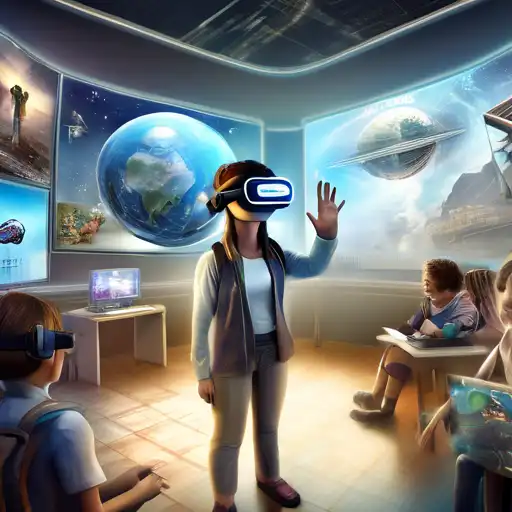Introduction to Virtual Reality in Education
Virtual Reality (VR) is rapidly transforming the educational landscape, offering immersive learning experiences that were once unimaginable. This technology is not just a tool for entertainment but a powerful educational instrument that can enhance understanding, retention, and engagement among students of all ages.
The Benefits of VR in Learning Environments
VR brings a host of benefits to the educational sector, including but not limited to:
- Enhanced engagement through immersive experiences
- Improved retention rates by simulating real-life scenarios
- Accessibility to distant or dangerous locations without physical travel
- Customizable learning experiences to suit individual needs
Implementing VR in Schools and Universities
Many institutions are now integrating VR into their curricula to provide students with a cutting-edge learning experience. From virtual field trips to complex scientific simulations, VR is making learning more interactive and fun. For example, medical students can perform virtual surgeries, gaining hands-on experience without the risks associated with real-life procedures.
Challenges and Considerations
Despite its potential, the adoption of VR in education faces several challenges, such as the high cost of equipment and the need for technical support. However, as technology advances and becomes more affordable, these barriers are expected to diminish, making VR a staple in educational settings worldwide.
Future Prospects of VR in Education
The future of VR in education looks promising, with ongoing developments aimed at making virtual learning even more realistic and accessible. Innovations such as haptic feedback and AI integration are set to further enhance the VR learning experience, making it an indispensable tool in the educational arsenal.
For more insights into how technology is shaping the future of education, check out our article on The Role of Artificial Intelligence in Modern Classrooms.
Conclusion
Virtual Reality is undeniably the next frontier in education, offering unparalleled opportunities for immersive learning. As we continue to explore and expand its applications, VR has the potential to revolutionize how we teach and learn, making education more engaging, effective, and accessible to everyone.
